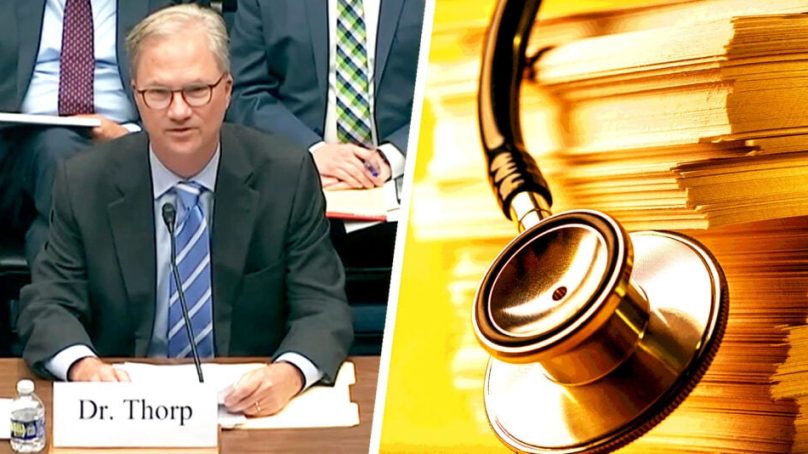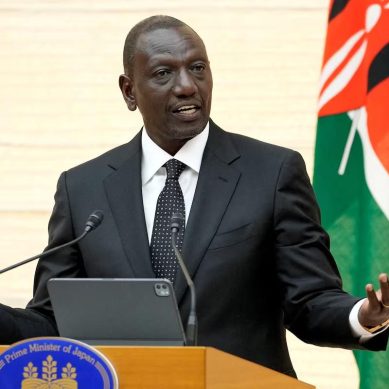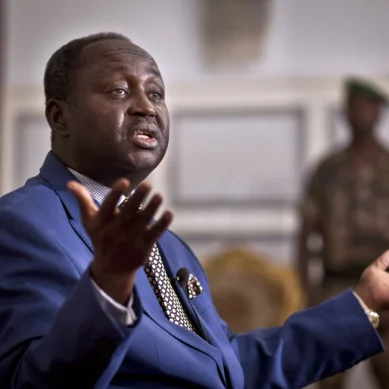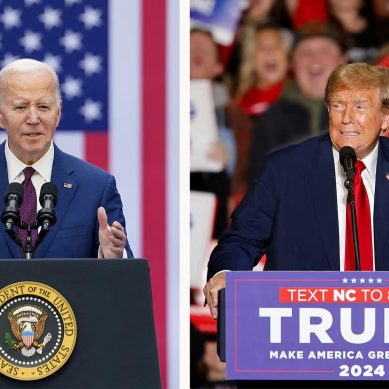
The US House Subcommittee on the Coronavirus Pandemic invited the editors-in-chief of Nature, Science and The Lancet to testify on government interference in the peer-reviewed publication process. Only Science’s editor-in-chief participated in Tuesday’s hearing.
Only one of three science journal editors invited to testify before Congress on government interference in the peer-reviewed publication process accepted the invitation this week.
Holden Thorp, editor-in-chief of the Science family of journals, on Tuesday testified before the US House of Representatives Select Subcommittee on the Coronavirus Pandemic.
Magdalena Skipper, editor-in-chief of Nature and Richard Horton, editor-in-chief of The Lancet, “declined to participate,” according to the subcommittee’s website.
“We invited the editors-in-chief of The Lancet, Nature and Science. Only the editor of Science had the courage to come and help us be better,” Subcommittee Chair Brad Wenstrup (Republican-Ohio) said.
In his opening remarks on Tuesday, Wenstrup said, “This subcommittee was established so we can collectively take a look back on the pandemic and see what we can do better for the next time.”
But experts who spoke with The Defender said they were disappointed with the editors who declined to testify, but also with the members of the subcommittee, who they argued failed to address key issues during the hearing.
Cardiologist Dr Peter McCullough told The Defender, “The committee and Thorp disappointed academic researchers and the public alike.”
McCullough, author of more than 1,000 science journal articles, added: “Thorp was silent on harmful retractions of fully published papers… This has happened repeatedly for manuscripts describing early treatment(s) and protocols for ambulatory acute SARS-CoV-2 infection and for reports of Covid-19 vaccine injuries, disabilities and deaths.
“Who is behind these retractions? Why are they working to suppress early therapeutic options for patients and scrub any concerns over vaccine safety?”
Epidemiologist and public health research scientist M. Nathaniel Mead told The Defender, “It seems very telling” that Skipper and Horton skipped Tuesday’s hearing.
“In the context of SARS-CoV-2 origins, these two journals have been accused of being unduly influenced by the pharmaceutical industry and government agencies,” Mead said. “Such conflicts can impede unbiased scientific reporting and commentaries.”
“Skipper and Horton’s absence would seem to be a tacit admission of guilt on the part of the two journals they represent,” said Mead, who wrote a peer-reviewed paper that was retracted by the journal Cureus after publication.
McCullough said two papers for which he was senior author were retracted. “In both instances, the public and the practising community were harmed by the intentional omission of critical side effects from the knowledge base on these products.”
Independent journalist Paul D. Thacker has investigated scientific censorship for The Disinformation Chronicle. He told The Defender, “The science and medical journals did not publish the best research available during the pandemic. They just served as gatekeepers to protect people, institutions and corporations in power.”
Thacker added: “Holden Thorp should resign. He oversaw a news section that ran several fake stories about the pandemic to misinform the scientific community. And Science published studies that have been noted in the peer-reviewed literature for poor statistics to deny a possible lab accident. It’s a historical low point for this publication.
“Nothing will change from these hearings. My only hope is that some researchers will understand how corrupt the scientific process has become and this hearing will spur them to make change.”
During his opening remarks, Wenstrup said the hearing was not intended “to see how the government can be more involved in the journal editorial process, but to make sure that the government does not involve itself or influence this process.”
“There’s no denying the awesome power these periodicals as well as their editors hold over the medical and scientific communities,” Wenstrup said. As a result, “there can be no place for politics or inappropriate government influence of journals.”
But Wenstrup accused the journals and their editors of not always being “arbiters of truth.” Instead, he said, they “provide a forum where scientific claims are made, defended and debated by peer review.” Wenstrup added, “We saw a breakdown of that during the pandemic.”
“Rather than the journals being a wealth of information and opinions about this novel virus of which we knew so little, they helped establish a party line that literally put a chilling effect on scientific research regarding the origins of Covid-19,” Wenstrup said.
Wenstrup cited the Proximal Origin paper published by Nature in March 2020 as an example, saying that it helped “set a precedent … that the natural origin of Covid-19 was the only plausible theory.”
“Anyone else who had even the inkling of another plausible scientific thought was immediately labelled a conspiracy theorist … How is that acceptable in the scientific community when the entire crux of the field is open for debate?” Wenstrup said.
During his opening remarks, Ranking Member Representative Raul Ruiz (Democratic-California) contradicted Wenstrup’s statements, claiming the subcommittee has not proven that top government public health officials such as Dr Anthony Fauci and Dr Francis Collins orchestrated the publication of the Proximal Origin paper.
Thorp told members of the subcommittee that he is “extraordinarily proud of the Science journals’ work” and “of the role that the scientific enterprise plays in society.”
He said the Science journals “abide by a rigorous multi-step peer-review process” and “a careful process to ensure that the reviewers do not have a conflict of interest.” This “well-established process,” he said, “was applied consistently to the nearly 9,000 research papers submitted to the Science family of journals related to SARS-CoV-2.”
Thorp referred to a May 2021 letter by virologist Jesse D. Bloom that Science published in its commentary section. “This letter called for a thorough investigation of a lab origin of Covid-19,” Thorp said, citing the commentary as evidence the journal did not conduct viewpoint censorship.
“Publication of this letter turned the tide in the discussion of Covid origins toward considering the possibility of a lab origin,” Thorp said.











